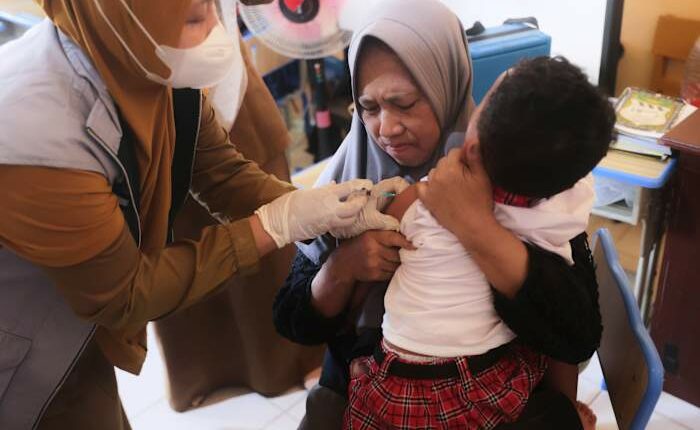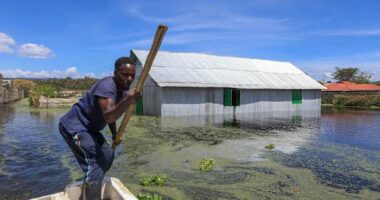Share this @internewscast.com

SUMENEP – On Monday, a large number of children in Indonesia queued up to receive free measles vaccinations as part of a government initiative to counter an outbreak that has resulted in 17 fatalities.
Officials reported that in the past eight months, over 2,000 children in East Java province contracted measles. The Sumenep district accounted for 16 of the 17 deaths. Data from the Sumenep District Health Agency indicated that 16 of the deceased were not vaccinated, and one failed to complete the vaccination course.
Indonesia has a history of measles outbreaks, primarily due to insufficient vaccination levels within the predominantly Muslim country.
In 2018, a significant outbreak occurred in Papua, the country’s easternmost province, resulting in many deaths. During the same period, the Indonesian Ulema Council found that the measles and rubella vaccine used at the time contained pork. The vaccine from the Serum Institute of India was temporarily allowed until a pork-free version was available.
Last year, only 72% of Indonesia’s 22 million children under five received the measles vaccine. In some areas, the vaccination rates were below 50%, according to Statistics Indonesia.
Authorities in Indonesia have appealed to the public, and to community and religious leaders, to back immunization drives. The current vaccination campaign in Sumenep aims to cover 78,000 children between the ages of 9 months to 6 years.
“Otherwise, this disease, measles, will spread further among our children. It will be even more fatal in the future,” said Imam Hasyim, deputy chief of Sumenep district.
Globally, the World Health Organization says 84% of children received the first dose of measles vaccine last year, and 76% had received two doses. But experts say measles vaccine rates need to reach 95% to prevent outbreaks.
WHO noted that 60 countries reported big measles outbreaks last year.
___
Tarigan reported from Jakarta, Indonesia.
Copyright 2025 The Associated Press. All rights reserved. This material may not be published, broadcast, rewritten or redistributed without permission.












